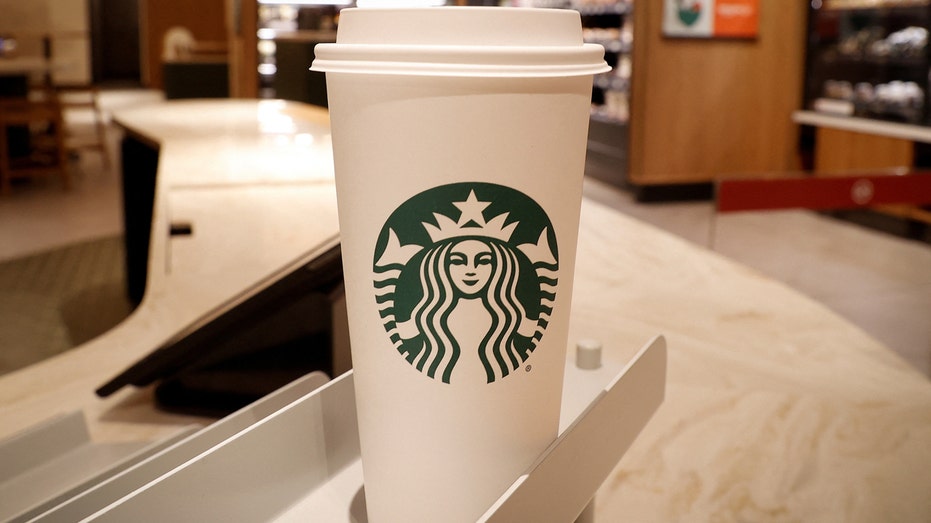US Supreme Court backs Starbucks over fired pro-union workers
Starbucks challenged NLRB's order to rehire workers while case was being settled
Former Starbucks CEO Howard Schultz defends company in Senate testimony
Starbucks' former chief executive pushed back against accusations of "union busting" at the coffee giant. CREDIT: C-SPAN
- The U.S. Supreme Court sided with Starbucks in its challenge to a judicial order to rehire seven Memphis employees fired as they sought to unionize.
- The employees became among the first in the company to unionize.
- Starbucks argues that the judge in that case should have used a stringent four-factor test when considering the bid for an injunction.
The U.S. Supreme Court sided on Thursday with Starbucks in the coffee chain's challenge to a judicial order to rehire seven Memphis employees fired as they sought to unionize in a ruling that could make it harder for courts to quickly halt labor practices contested as unfair under federal law.
The justices threw out a lower court's approval of an injunction sought by the U.S. National Labor Relations Board (NLRB) ordering Starbucks to reinstate the workers while the agency's in-house administrative case against the Seattle-based company proceeds.
Starbucks had argued that the judge in the Memphis case should have used a stringent four-factor test to weigh the bid for an injunction, similar to the standard used by some other courts and in non-labor legal disputes. This test includes an assessment of whether the side seeking relief would suffer irreparable harm and is likely to succeed on the merits of the case.
STARBUCKS FOUNDER SAYS STEVE JOBS TOLD HIM TO FIRE EXECUTIVE TEAM: 'HE WAS RIGHT'
Starbucks contended that under a stricter standard, the case would have come out differently in the lower courts.
President Joe Biden's administration had defended the NLRB's actions in the case. During Supreme Court arguments in the case in April, a Justice Department lawyer said the NLRB seeks injunctions like the one issued against Starbucks in very few "cream of the crop" cases, last year requesting just seven even though it receives 20,000 unfair labor charges annually.
About 400 Starbucks locations in the United States have unionized, involving more than 10,000 employees. Both sides at times have accused the other of unlawful or improper conduct.

Starbucks beverage cups are displayed where customers receive their orders at a Starbucks store in New York City, New York, on Nov. 16, 2021. The U.S. Supreme Court sided with Starbucks in its challenge to a judicial order to rehire employees who wer (Reuters/Mike Segar/File Photo / Reuters Photos)
Hundreds of complaints have been filed with the NLRB accusing Starbucks of unlawful labor practices such as firing union supporters, spying on workers and closing stores during labor campaigns. Starbucks has denied wrongdoing and said it respects the right of workers to choose whether to unionize.
Both sides in February announced they had agreed to create a "framework" to guide organizing and collective bargaining and potentially settle scores of pending legal disputes.
In 2022, workers at a Starbucks cafe on Poplar Avenue in Memphis became among the first in the company to unionize. Early in their efforts, they allowed a television news crew into the cafe after hours to talk about the union campaign. Starbucks fired seven workers present that evening, including several who belonged to the union organizing committee.
Despite the dismissals, employees there subsequently voted to join the Workers United union.
GET FOX BUSINESS ON THE GO BY CLICKING HERE
The union filed unfair labor charges with the NLRB over the firings and other discipline by managers. The NLRB sought an injunction, accusing Starbucks of unlawfully firing the workers for supporting the union drive and to send a message to other workers.
U.S. District Judge Sheryl Lipman granted the injunction in 2022, reinstating the workers in order to address the "chilling effect" of the dismissals on the unionization effort while the NLRB resolves the case. The Cincinnati, Ohio-based 6th U.S. Circuit Court of Appeals upheld the injunction in 2023.
The 6th Circuit rejected the company's argument that Lipman should have used a four-factor test before granting the injunction. That led Starbucks to appeal to the Supreme Court.




















